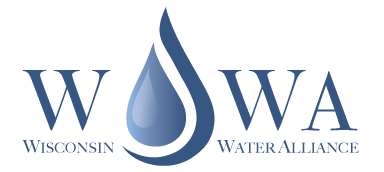
Who We Are
The Wisconsin Water Alliance is a non-partisan, statewide organization whose mission is to help protect the state’s water resources and advocate for sound water policies that benefit current and future generations of Wisconsin families, cities, businesses, farmers and others. Wisconsin is blessed with an abundant supply of freshwater, including deep, replenishing aquifers, the Great Lakes, the Mississippi River, the Wisconsin River, many other rivers and streams and an estimated 15,000 inland lakes. At the same time, Wisconsin, particularly in the southeastern part of the state, is home to a variety of water technology companies and manufacturers involved in the business of water conservation. The region also is home to the Water Council, a non-profit organization that drives economic, technology and talent development to support the global water industry. A number of Wisconsin industries, including tourism, agriculture, pulp and paper, food products, advanced manufacturing and others, recognize the importance of water as a natural resource and rely on and help protect water as a key component to help grow the state’s economy. Through reasonable state and local policies, we can continue to rely upon our freshwater to help drive the state’s economic engine while at the same time protect this precious natural resource.

Issues Happening Around Wisconsin Water

PFAS Administrative Action
Access to Water
Concentrated Animal Feeding Operations (CAFOs)
Phosphorus Regulations – Multi-Discharger Variance
In 2010, the Wisconsin DNR significantly revised and enhanced the administrative rules defining Phosphorus Water Quality Standards. In 2013, the Wisconsin Legislature enacted Act 378, which directed the Wisconsin Department of Administration and DNR to investigate the impacts on Wisconsin’s economy associated with implementing the wastewater treatment necessary to remove phosphorus. Based on this study, the DOA/DNR made a determination that the costs caused substantial and widespread economic impact to the state, likely hurting workers, consumers and businesses. As a result, the state sought and was granted a variance from the federal government that provides more time to find a solution to this issue. How effectively this “variance” will be implemented remains to be seen and a long-term path forward must be planned to avoid the significant negative economic impact predicted by the study.
Local Government Water Issues
Industrial Sand Mining


Leadership
President
Mike Huebsch
Board Member
Lucas Vebber
Board Member
Lee Nerison
Board Member
T.J. Tuls
Board Member
Deric DuQuaine
Board Member
Louis Wysocki
Board Member
Dan Ellsworth
Board Member
Ted Nickel
Senior Advisor
Joe Fadness

